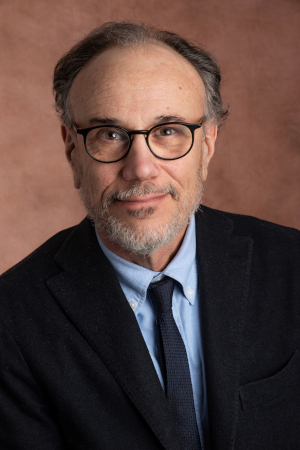
The chief of the new Division of Geriatrics in the medical school’s Department of Medicine brings with him more than three decades of experience as a geriatrician as well as work in medical ethics and the history of medicine.
Daniel Brauner, MD, is an internal medicine physician with added sub-specialization in geriatrics and rheumatology. He focuses on longitudinal care for older patients in various settings where care is provided, including clinics, nursing homes and hospitals.
Dr. Brauner started in his new role at WMed in January. He is a professor in the Department of Medicine and has a secondary appointment in the Department of Family and Community Medicine.
He comes from the University of Chicago Pritzker School of Medicine, where he served as the program director for the Geriatrics Fellowship. He has served as a medical director for more than 20 years, and has provided guidance for challenging cases as an ethicist at the MacLean Center for Clinical Medical Ethics. He was co-director of the consult service and assistant director of the center.
Dr. Brauner is board certified by the American Board of Internal Medicine in general internal medicine, Rheumatology and Geriatric Medicine.
Dr. Brauner earned his MD degree in 1979 from Upstate Medical Center, State University of New York in Syracuse. In 1983, he completed an internal medicine residency at Cook County Hospital in Chicago, where he was chief resident. He completed a fellowship in rheumatology in 1985 at the University of Illinois and Cook County Hospital. Dr. Brauner was one of the founding members of the Geriatrics Section at the University of Illinois, where he worked until moving to the University of Chicago in 1994.
“I came to WMed because of the amazing opportunity to create and build a new and unique Geriatrics division,” Dr. Brauner said. “This will be a time to define what geriatric care looks like in Kalamazoo. I think geriatrics brings an important perspective that seeks to tailor medical care to the specific needs of the individual patient. For example, this may mean stopping or deprescribing drugs. Polypharmacy, or being on too many drugs, is an important problem in general and especially in older patients.”
Dr. Brauner said he plans to have a geriatric assessment clinic that would explore issues with patients and the various approaches available to improve their care, keeping in mind social, psychological and functional issues. He stressed the importance of respecting the values and desires of the patient and others who may be involved in decision making. The clinic would serve as a model for teaching residents and students. He said he also will be consulting on hospitalized patients at Bronson Methodist Hospital and Ascension Borgess in an effort to optimize the care of older patients.
In Kalamazoo, Dr. Brauner said he will be active in the Senior Care Partners P.A.C.E. (Program of All-Inclusive Care for the Elderly) program and said he is a believer of the program’s approach of keeping people in their homes and of their ability to provide many services in a time where lots of medical care is fragmented.
Dr. Brauner said he has an interest in the ethical dimensions of geriatrics, including how to protect people from default procedures that are done and how they can be avoided, especially in some older patients who the procedures won’t help. He said he also has an interest in the history of medicine and the forces that control how medicine is practiced today. He is currently writing a book about the history of resuscitation.
Dr. Brauner said he’s interested in creating a “patientist” model of care in Kalamazoo – following patients where they are, such as in nursing homes, clinics, hospitals, and at their homes. He said the patientist model derives from a desire to move away from the strong influence billing codes have had on the practice of medicine.
“My vision for the patientist is that they would be the person’s doctor, directing their care and looking out for the patient wherever they were,” Dr. Brauner said. “It may not be quite as efficient as the current model but efficiency in medicine is not always the most important factor.”
Dr. Brauner said not all older people need a geriatrician, but said the knowledge of a geriatrician is especially important for older people who have multiple co-morbidities or medical problems and also those with cognitive issues.
“I’m excited to be here,” Dr. Brauner said of Kalamazoo. “It seems like a really vital city and I’m interested in getting more involved and figuring out how we can serve the people of Kalamazoo.”
